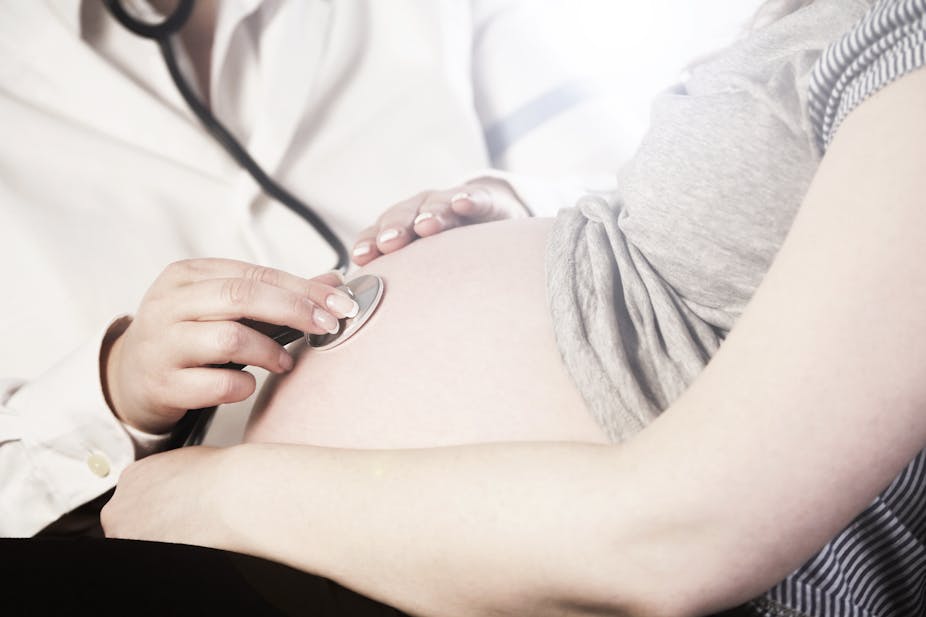Being under lockdown in the middle of a global pandemic is stressful enough, so imagine the added burden of being pregnant. Scientists are only beginning to understand how COVID-19 can affect pregnant women and their unborn babies and, while the world focuses on protecting the elderly and other vulnerable groups, pregnant women might be overlooked.
The immune system during pregnancy becomes less aggressive so as not to attack the genetically different baby growing inside the mother. This makes the mother more susceptible to viral infections. Similarly, the size of the chest cavity decreases during pregnancy, leaving the lungs with less space to work in due to pressure from the growing womb. This is why pregnant women often experience difficulty in breathing, especially in the last three months of pregnancy. It could also make COVID-19 more severe.
COVID-19 is not the first viral infection to affect pregnant women. We know from previous coronavirus infections that pregnant women were particularly at risk. Although early reports about novel coronavirus from China didn’t indicate any cause for alarm, scientists have been wary to jump to any conclusions until more data has become available.
In order to see what real effect COVID-19 was having on pregnant women, all available data needed to be pooled together. We analysed the first 108 pregnancies reported with a confirmed COVID-19 infection. These mothers often suffered from the classic symptoms of COVID-19: fever and a dry, persistent cough. But not all the women showed symptoms, while some only displayed one or two.
Most of these mothers were in their third trimester and required a hospital stay with medical treatment, but only a handful needed treatment in an intensive care unit and no deaths were reported. However, delivery before the baby’s due date was common an, although vaginal delivery was possible, more than 91% of the mothers had their babies delivered by caesarean section. The reason for this was often unclear, but some researchers cited possible foetal distress – which means that the unborn baby was at risk from suffering a lack of oxygen.
Understanding risks
A number of factors can complicate pregnancy – including obesity, high blood pressure and diabetes. We found there is increasing evidence suggesting that women with already high-risk pregnancies had more severe COVID-19 infections.
Our review did not find any evidence of mothers infecting their foetus with COVID-19. From the published cases so far, no traces of the novel coronavirus has been found in the placenta or the umbilical blood in the studies we’ve reviewed, which makes it unlikely that a mother can infect her child while it is still in the womb. But this could change as more information becomes available.
Doctors can examine the baby after birth to ascertain whether it has been infected – either by taking samples from its nose or throat or by looking for antibodies to COVID-19 in the baby’s blood. Out of approximately 110 known cases only two babies have been reported to be positive of COVID-19 from a swab in the nose or throat – one child in China and another in Peru.

Both of these babies were born by caesarean section and didn’t have any skin-to-skin contact with their mother, which makes post-delivery infection unlikely, but not impossible. The Peruvian baby was admitted to the neonatal intensive care unit with no other COVID-19 cases present. It tested positive 16 hours after birth, which is the earliest reported discovery of COVID-19 in a newborn. In the Chinese case, sampling was not performed until 36 hours after birth, which makes it more likely the child was infected after birth. The authors of the Chinese case report couldn’t rule out the possibility of other contact transmission.
Three newborns have also been reported to have antibodies specific to COVID-19 in their blood after birth. But the significance of these findings was questioned, as the amount of antibodies declined after birth when they were expected to rise if the child were infected in the womb. There is also a possibility that the test to identify early antibodies (called IgM) for the novel coronavirus can give false positive results.
Even if it has not been shown that the mother can infect her foetus or child, the foetus may still be in danger, depending on the severity of the mother’s COVID-19 infection. In our systematic review, as well as in later reports from New York City and China, the majority of newborns have been asymptomatic. Among the symptomatic babies, the most common symptom was mild breathing problems, which was reported in 11 cases. Only two have been seriously sick – in one case fatally.
But none of the seriously sick newborns in these studies have been shown to be positive for COVID-19. It is possible that these newborns’ symptoms were not related to their mother’s novel coronavirus infection but could be explained by others reasons, such as them being born prematurely or by cesarean section. In any case, caregivers are cautioned to be aware of the rare possibility that a newborn could fall sick after its mother’s COVID-19 infection.
Most pregnant women infected with the novel coronavirus will experience it as a common cold, with fever and perhaps a sore throat or dry cough. Still, in our review, 3% needed intensive care if infected during the last third of their pregnancy. It is vitally important that pregnant women follow the World Health Organization’s advice: wash your hands frequently, maintain social distancing, avoid touching eyes, nose and mouth. If you have fever, cough or breathing problems, seek care early.

